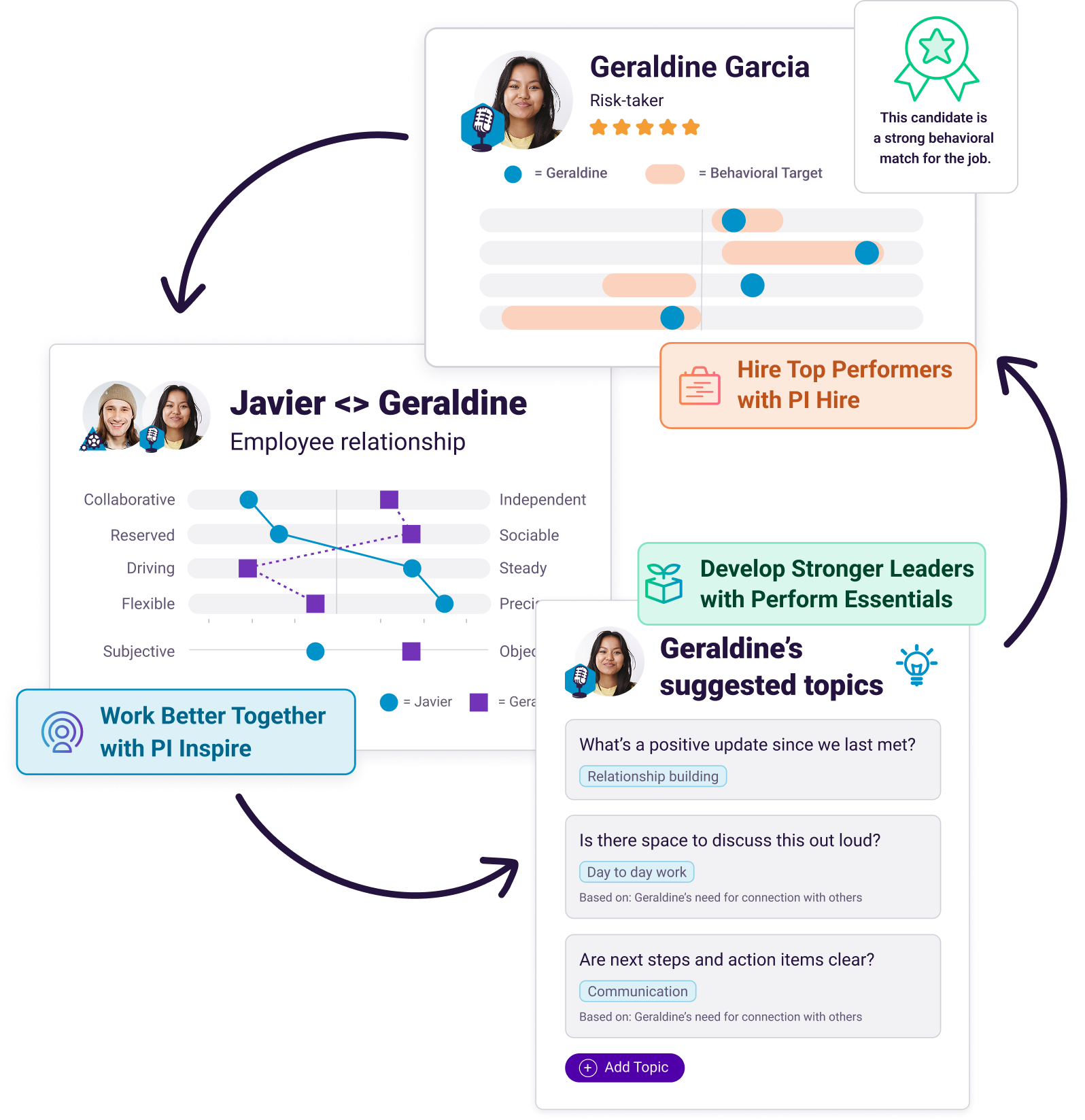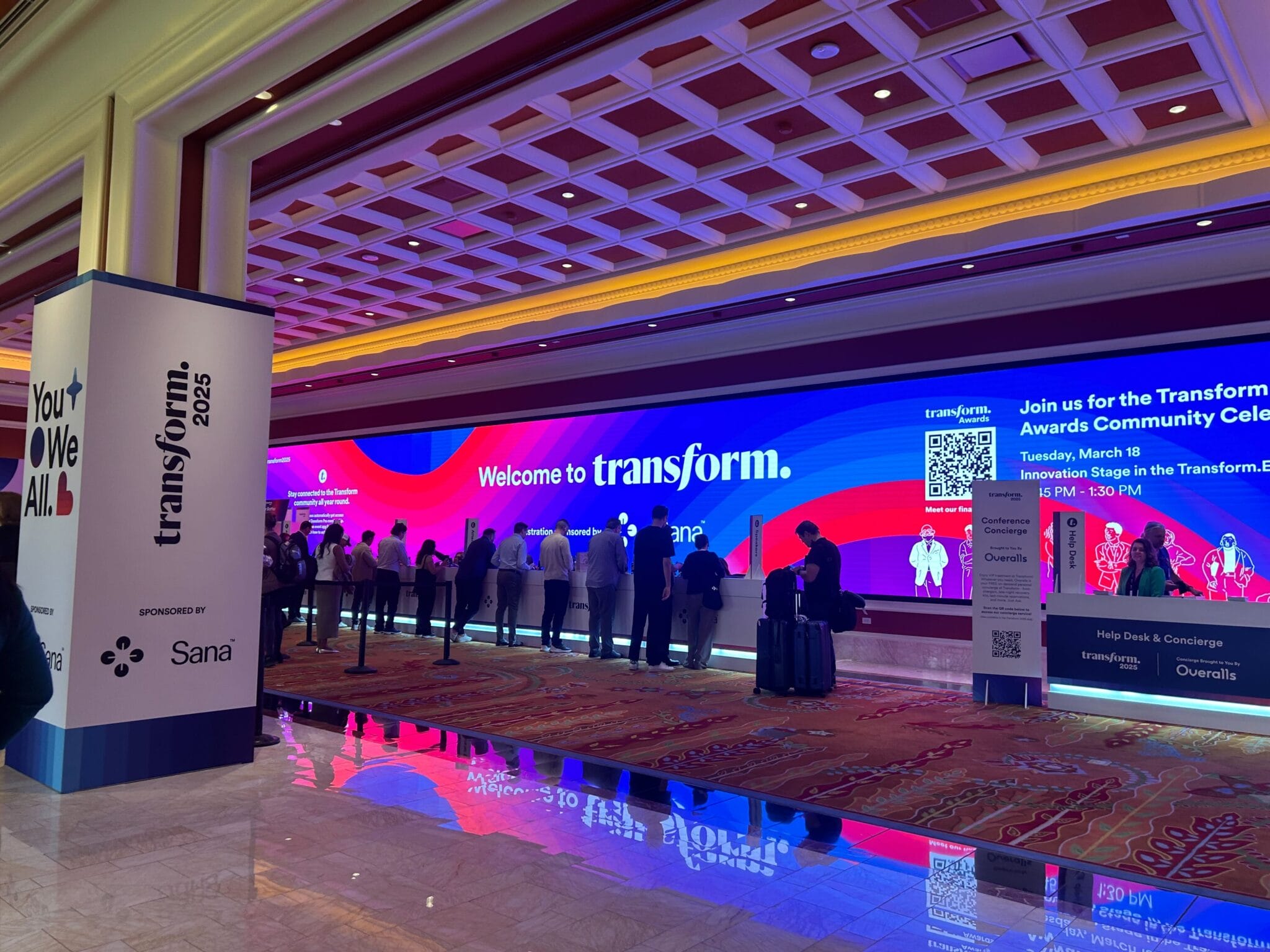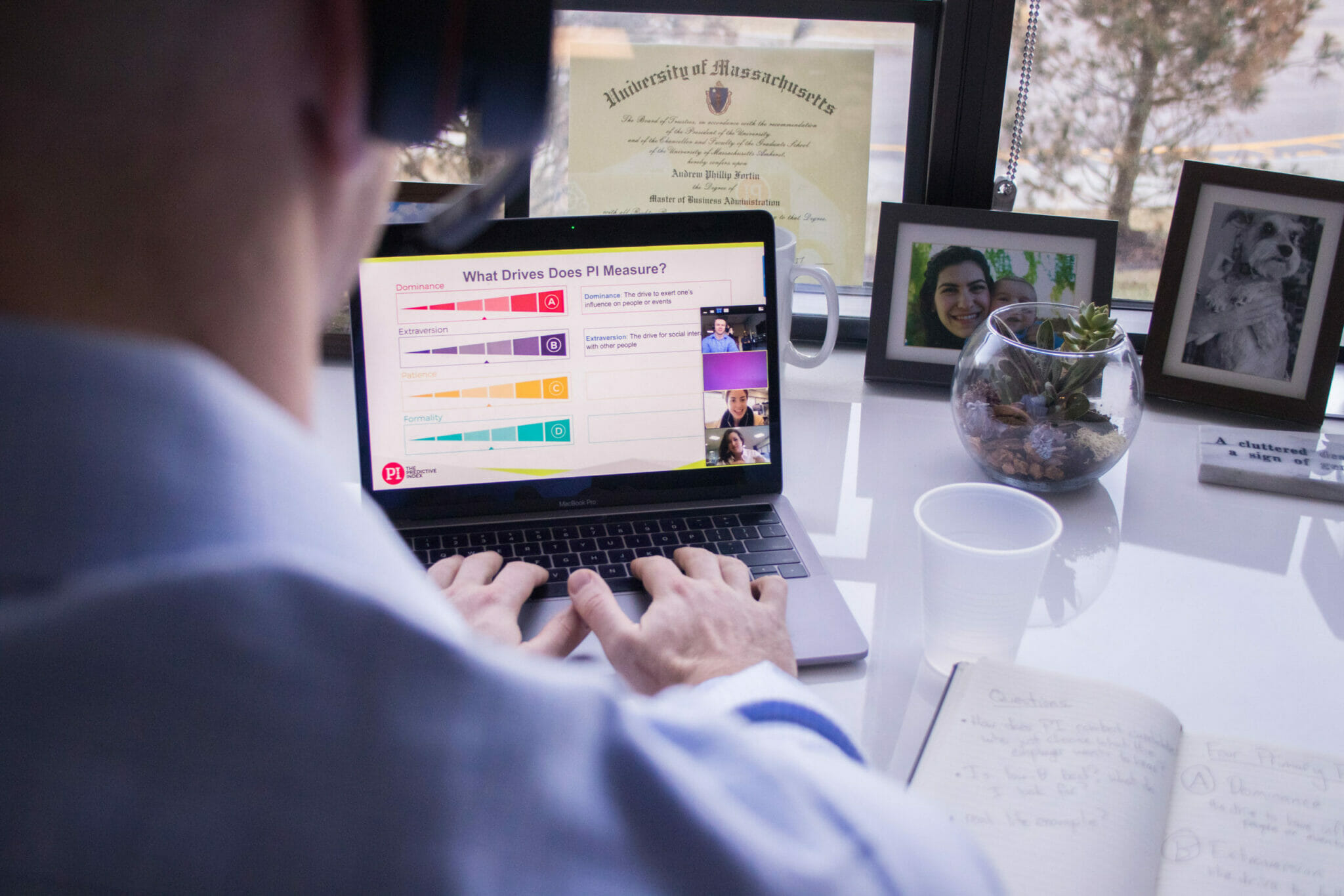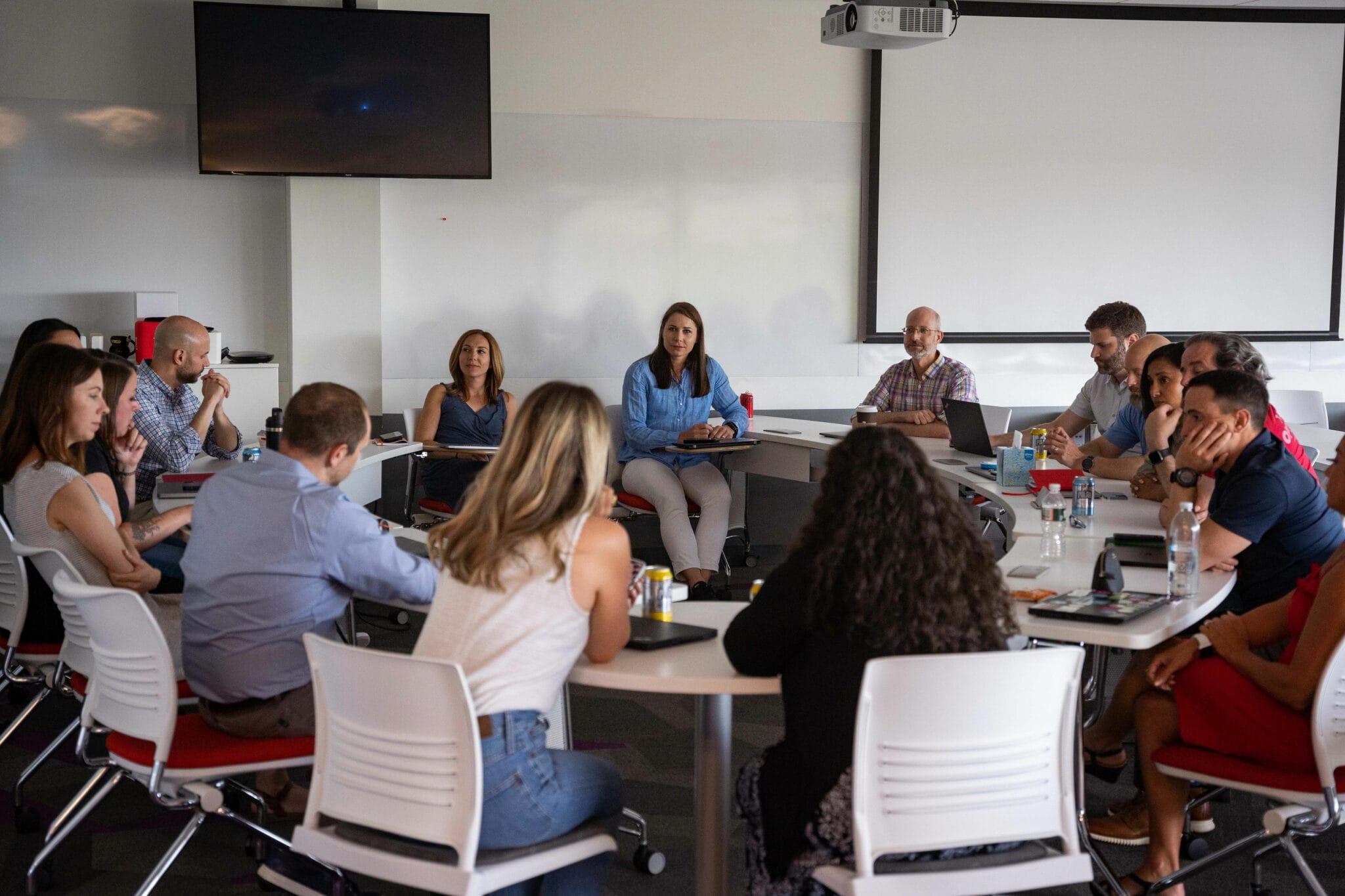Employees are the lifeblood of any organization, which is why every effective manager and HR leader must understand the critical importance of optimizing their talent acquisition and team dynamics. When your team is composed of effective, efficient, enthusiastic, and energized members, the business flourishes.
But how do you ensure your team is top-performing? Talent, ability, skills, and experience are all crucial in the hiring process, and while they are similar, they are not the same. We break down the subtle nuances of these terms, including which are the most important during the hiring process.
Defining talent, ability, skill, and experience
While similar, there are key differences between talent, ability, skill, and experience.
- Talent: Talent refers to someone’s natural ability to perform a task without a great deal of effort. For example, someone may be naturally gifted with hand-eye coordination, which means juggling has come naturally to them ever since they were a young age.
- Ability: Ability refers to a skill that someone has honed over time with consistent effort. Someone could have struggled with hand-eye coordination in the past, but with persistent practice, they learned how to juggle ably.
- Skill: Skill refers to someone’s ability to do something well with minimal time or energy. If someone is a skilled juggler, they can do it quickly while making few if any mistakes.
- Experience: Experience refers to skills that are gained over time through practical application. After years of experience, someone may have learned how to juggle effectively in a variety of settings, regardless of their audience or circumstances.
Each of these traits is an asset in a potential hire or current team member, and it’s critical not to rely solely on one factor over the other.
Talent can go a long way, but it only goes so far without the effort required to build ability and skill. Ability and skill may set a potential hire apart, but do they have the experience to adapt and react under pressure? In contrast, decades of experience does not always equate to someone’s talent, ability, or skill.
Optimize the entire talent journey.
Talent Optimization Essentials is the all-in-one, science-backed solution to hire, develop, and retain top talent.
Talent versus ability
Let’s dig deeper into talent and ability and how they vary.
Innate vs. developed
Talent refers to a person’s natural inclinations, whereas abilities can be both inherent and cultivated.
Talent is often discovered early since it’s naturally occurring and there from the start. It is in someone’s nature – it’s innate.
Let’s say someone is innately charismatic. What this means is that ever since they were a small child, they’ve been effortlessly charming and rarely missed a beat in a conversation. Regardless of their surroundings, whether it’s in class, at work, or at the gym, they’re the center of the party. Everyone wants to talk to them, and they want to talk to everyone. They can’t seem to help it; talking and connection comes easy.
However, since it comes so easily, a person with a natural talent for communicating with others may take it for granted and never work to improve their skill.
Developed skills are different but can achieve the same results. It could be that someone was always shy as a child and avoided people but always dreamed of being able to easily communicate with others. While communication skills didn’t come naturally, they cultivated them through improv, public speaking classes, and real-world experience.
With consistent effort and practice, they developed the ability to easily communicate with others—or, at least, that’s what it looks like from the outside.
Developed skills are often more cherished by the individual, as they know how much hard work it took to get them where they are today. As opposed to someone with a natural talent, someone who has worked to hone their ability over time understands the value of continuous improvement and doesn’t take their skill for granted. They know they can always be better.
Learn more about Innate vs. acquired traits in the workplace.
Identification and nurturing
Recognizing innate talent is essential to building an effective team that’s enthusiastic about doing their job to the best of their ability.
As a manager or HR leader, pay close attention to the natural inclinations of your employees and team members. What tasks do members consistently gravitate to and excel at? What jobs do they volunteer for and lose themselves in? When are they in a flow state, and when are they not? Consider performance data. Can you identify patterns of exceptional performance?
For example, does a particular team member always volunteer to lead client-facing presentations, and do they consistently deliver? Are they truly proud of and satisfied with their performance? If so, you’ve identified a team member with innate charisma and communication skills.

Skills vs. experience
Skills and experience are both essential to optimal job performance, but how do they differ, and how can you balance both in the workplace?
Acquired proficiency vs. practical exposure
We develop skills through acquired proficiency, deliberate training, and focused practice. For example, having your team undergo a professional development course to master a specific set of skills, such as the best practices for selling an idea or product to a client.
You gain experience, on the other hand, through real-world, practical exposure. The more experience someone has, the better they will adapt to new situations and be able to react under pressure. This is because they have years of familiarity and exposure under their belt.
Experience provides hands-on context into how to practically apply skills. You can have your team learn all there is to know about sales best practices, but until they actually face a client in real life, their skills are still theoretical. Experience is more informal. It takes the training wheels off—employees learn by doing.
Whereas acquired proficiency leads to the mastery of a skill, you can acquire practical exposure through real-world application.
You can have experience with cooking by working in the kitchen of a restaurant (practical exposure), but without formal training (acquired proficiency), it’s unlikely a high-end, reputable restaurant will hire you.
In your personal life, you may know someone with decades of experience cooking every day who’s lack of talent, skill, or ability translates to an overcooked turkey every holiday season.
Experience may result in increased skill and ability—but it’s no guarantee.
Balancing both in talent management
Ideally, you want prospective and current employees to be both masters of their skillsets and wise to their real world application. Both are essential to talent management and cannot exist in isolation.
Personality and cognitive ability tests are an excellent way to assess a potential or current employee’s skillset, whereas targeted questions about job history during an interview can get to the root of their specific experience practically applying those skills.
Practical application
Aside from your own direct observations, use surveys, personality assessments, one-on-one meetings, and 360-degree feedback from direct reports, colleagues, and supervisors to identify the natural talents of each team member.
But of course, just because someone is innately talented at something doesn’t mean there’s no room for improvement, and just because someone isn’t innately gifted at something doesn’t mean they can’t work to build the relevant skills.
Use the tools listed above to identify skill gaps within your team. What are the personal and professional goals of your employees? Nurture your team’s development through on-the-job training and support. Provide the resources and tools your team needs to develop their abilities, and then recognize and celebrate their progress.
With these tools and strategies, HR leaders and managers can cultivate a workplace in which the innate talents of employees are recognized and nurtured while abilities are developed through continuous learning and support.
How to leverage your understanding of talent, ability, skill, and experience with the Predictive Index
Talent, ability, skill, and experience are all key aspects of the hiring process and essential to your team’s optimization.
However, while talent is an excellent quality in a candidate, it should not be prioritized over everything else since it does not speak to an employee’s work ethic or continuous improvement mindset. In fact, in some cases, natural talent can hinder an employee’s drive for improvement because things have always come naturally to them.
PI’s Talent Optimization Essentials bundle provides an all-compassing approach to building a thriving workforce.
Included in the bundle, PI Hire helps you scientifically pinpoint which candidates will make the best match for your business. Our assessments balance all aspects of an employee’s assets—talent, ability, skill, and experience—instead of relying on a single factor.
PI Inspire helps managers understand what drives each team member. Using science-backed data, you’ll understand how your direct report is wired to help them set goals and develop their ability and skill while building long-term experience.
PI Design helps you build a successful team based on collective strengths and weaknesses. It balances the talent, ability, skill, and experience of team members to help managers design a cohesive, collaborative, and effective team.
How do you know if your team is engaged and actively working toward building their skills and abilities? PI Diagnose provides you with clear, actionable feedback on your employees’ performance and mindset so that you can spot disengagement and fix it. Retain your best people and avoid quiet quitting or mass resignations.
Lastly, PI Perform will supercharge your one-on-one meetings and provide a clear check-in for assessing employee development across ability and skill. You’ll also be able to directly give praise through our Kudos feature, as team members illustrate new abilities, hone their skills, and demonstrate long-term commitment—which equates to experience.
Learn how you can have all of these tools at your fingertips with Talent Optimization Essentials.








